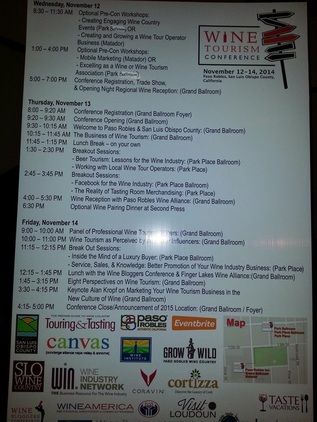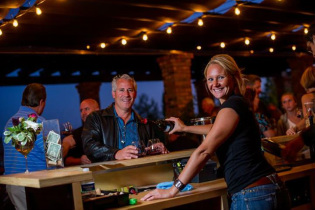 At times, writing and teaching about wine can be a solitary experience. That's why I was happy to engage in some human to human contact at the recent Wine Tourism Conference held in the welcoming wine country town of Paso Robles, California. As with most events of this kind, there was an often dizzying array of seminars to choose from, people to meet and re-connect with, and information to absorb. Here is a quick and dirty rundown of what I considered to be the main take-aways, many of which were repeated over the course of the conference.
0 Comments
Time to Talk Tasting Room, Wine Club and Customer Service Miramonte Winery-Temecula CA Miramonte Winery-Temecula CA For me, one of the best things I do as a Wine Educator, is to work with Tasting room staff. Often referred to as “servers” or ”pourers”, these important members of a winery’s front line are so much more. Yes, one of the main parts of the job is to pour wine samples for visitors and be pleasant and hospitable, but when a team member loves and excels in their position they are part Host/Ambassador/Educator/Entertainer/Phycologist and Salesperson. Welcoming every person who comes through the door and making them feel at home is common sense. Unfortunately, some establishments go only this far and then drop the ball. An ‘Ambassador’ can tell you what’s going on in the area; where to eat; who has the best picnic spots; talk about other things to do while you visit their part of the world. Yes, there is apparently more to do out there besides visit wineries! Wine ‘education’ is so important, and I know I’m biased in this department, but how can you expect your team to sell your product if they don’t know anything about it? The person who takes your order at Starbuck’s is well versed in coffee and your staff should be schooled in the basics of wine so they can be confident to answer any and all questions that come their way. And with that confidence will come the freedom to ‘entertain’ your guests with stories and humor making each visitor feel special. The ‘phycologist’ will know just the right questions to ask as well as have the patience to listen to your customers in order to ‘feel out’ their preferences and experience with wine. By doing so, the tasting can be tailored to their needs and your staff can suggest the right products. This makes them better ‘salespeople’ without having to badger customers with endless suggestions that don’t interest or appeal to them. Finding the right service, like a Wine Club membership or free shipping, shows that you listened to the individual needs of your guest. So next time you’re swirling your sample at the tasting room bar, don’t forget to take a moment and smile at your ‘server’. |
AuthorWine lover, educator and writer. Archives
March 2017
Categories
All
|

 RSS Feed
RSS Feed

